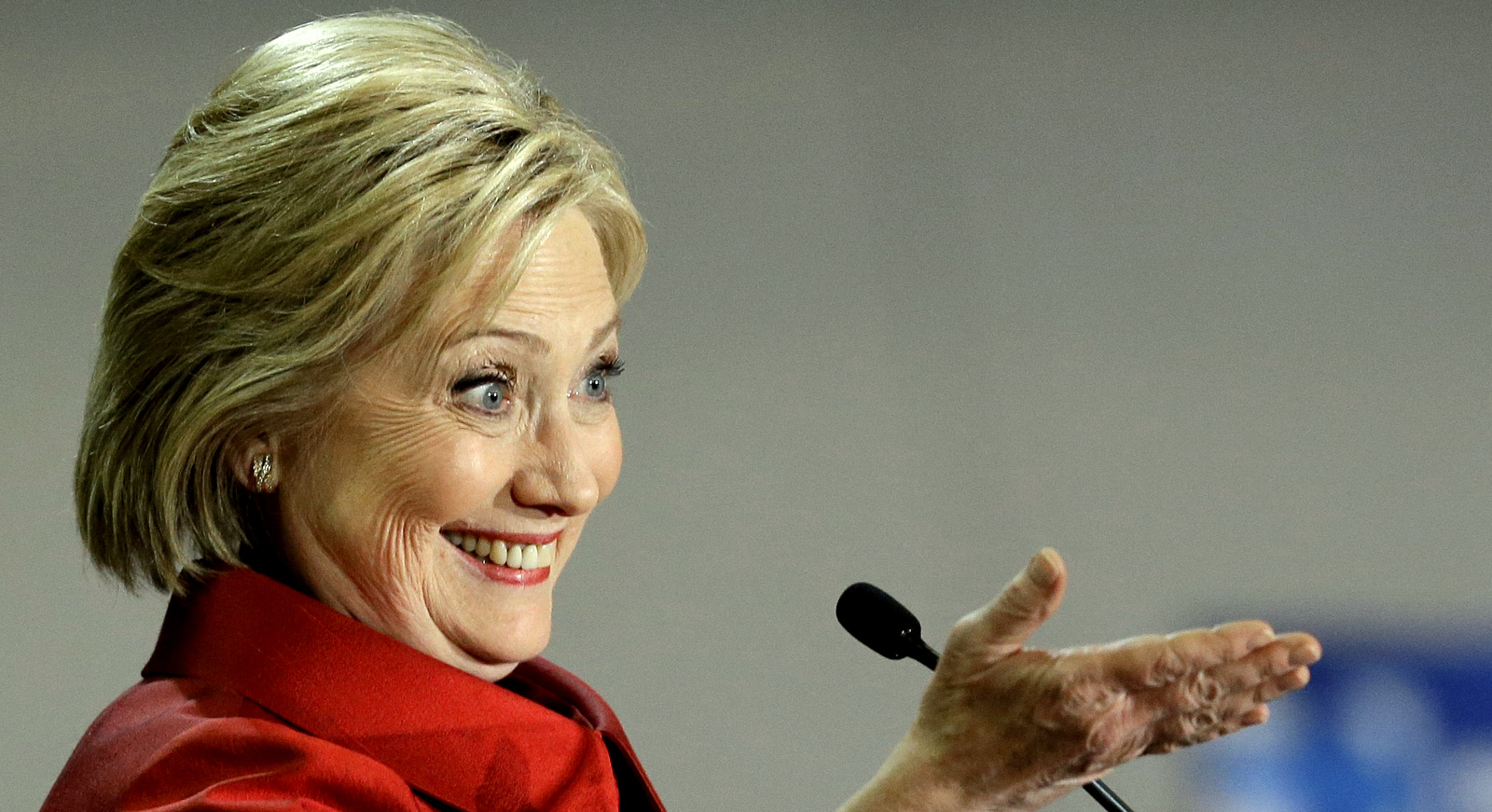
In a new poll conducted by Gallup, when asked what comes to their mind when they think of Hillary Clinton, the most common unprompted responses are “dishonest”, “liar” or “dislike her.”
Results for this Gallup poll are based on telephone interviews conducted Feb. 13-14, 2016, on the Gallup U.S. Daily survey, with a random sample of 1,014 adults, aged 18 and older, living in all 50 U.S. states and the District of Columbia.
What is perhaps more troubling is that in addition to the 21% of responses in the “dishonest/don’t trust her” category, another 7% of Americans use even stronger words in a similar negative vein, including “criminal,” “crooked” and “thief.” Nine percent say they dislike her. Smaller percentages (shown at the end of this article) associate her with Bill Clinton, with the controversy surrounding her use of a private email server while secretary of state and with the Benghazi terrorist attack.
The perceptions of Hillary Clinton as dishonest are not new. When Gallup asked the same question in 2008, “dishonest” was Americans’ most frequent response. And, in a Gallup poll conducted in September 2015, Americans overwhelmingly referred to the email scandal when asked to mention what they had read or heard about Clinton.
On the positive side, 8% of Americans say they like her, 7% describe her as capable and qualified, 5% as experienced, 3% as strong and 3% as a good politician. Smaller percentages consider her honest or smart.
Overall, 29% of Americans offer a positive observation about Clinton while 51% express something negative. The rest have either a neutral comment or no opinion. This loosely fits with her overall image among national adults as measured on Gallup tracking, which is 42% favorable and 51% unfavorable.
Americans were a little more agreeable with the other democratic candidate, Bernie Sanders, where the prevalent responses were two: “Socialist” and “aged.” Depending on one’s ideology, being classified as a socialist is either favorable or not.
As Gallup adds, Sanders is a self-avowed democratic socialist and, accordingly, 12% of Americans think first of the word “socialist” when they hear his name; another 3% say “communist.” Six percent of top-of-mind reactions to Sanders center on his age (he is 74 and would be 75 when inaugurated). Clear-cut negative impressions of Sanders include people saying they view him unfavorably; describing him as “crazy” or “delusional”; and claiming that he would provide government freebies or simply give money away.
On the positive side, in addition to views that Sanders is a fresh face and honest, Americans mention that he cares about people and the middle class, that he is personable and that he is intelligent.
The public’s comments about Sanders can be summarized as 26% positive and 20% negative, with the rest categorized as neutral, other or no opinion. The neutral grouping includes a significant number of references to “socialist,” “liberal,” “higher taxes” and his being older — which, as noted, can be construed as either positive or negative, depending on the respondents’ perspectives. Most of the references to Sanders’ being a “socialist” come from Republicans, and Americans rated “a socialist” as the least appealing type of presidential candidate in a recent Gallup poll. But because some Democrats also call him a socialist, the response was categorized as neutral.
The implications according to Gallup are that although many Americans cannot articulate much that is of substance when asked about Sanders, the most frequent comments about him revolve around his unique ideological branding as a democratic socialist and his advanced age. By contrast, the comments about Clinton are more personal in nature, including a large number of mentions of her lack of honesty and character, along with positive associations as a competent and well-qualified public servant.
Unfortunately for Clinton, the negative associations currently outnumber the positive ones by a sizable margin, and even among Democrats, the negatives are fairly high. Throughout her more-than two-decades-long career in the public eye as first lady, U.S. senator, secretary of state, two-time presidential candidate and bestselling author, she has acquired a fairly well-developed image among Americans — for better and for worse.
The image below sums it up best:




